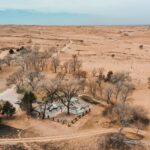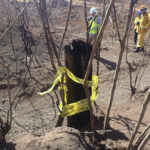If government can’t do it, business will.
Once the domain of government and charitable relief groups, hurricane response and preparedness are a booming billion-dollar business — from the self-heating food packets to the souped-up cell phone towers on wheels. Call it Hurricanes Inc.
“Private industry is the only way to go,” said Joe Spraggins, emergency management chief for a Mississippi county hit hard by Katrina.
The trend has been growing for a few years. But with 2004 when multiple storms struck Florida, and last year with Katrina, then Rita, it has only accelerated.
Spraggins, of Harrison County, Miss., won’t count so much on government for emergency supplies and other help this summer.
Instead, he’ll count on the lure of the almighty buck by hiring private companies to be ready with food, water, gas and sanitary sewer supplies.
The business opportunity is especially clear from the numbers at the annual National Hurricane Conference in Orlando this past week:
About 15 years ago, there were 30 exhibitors, according to coordinator Teri Besse. This year 170 companies and groups ponied up $1,500 for 10-foot booths for 2 1/2 days.
Sixteen companies have larger equipment towers, RVs and portable bathrooms sprawling across half the hotel parking lot. Forty more are on an exhibit wait list for lack of space.
Booths offer a soup-to-nuts menu: portable showers, cots, individual weather stations, hurricane shutters, chain saws, generators, and satellite phones. There’s software to help emergency managers decide what to do about an oncoming storm, expensive emergency communication systems for police and fire departments, and booths promoting engineering firms, debris hauling and trucking companies.
Perhaps the oddest sight was in front of the Redi-Alert sign company’s booth. It was embattled former Federal Emergency Management Agency director Michael Brown, who was in charge during Katrina, shaking hands and talking about the need for warning signs.
Giant established firms AshBritt Environmental and Phillips and Jordan Inc., which each got half-billion-dollar debris hauling contracts after Katrina, sponsored hotel keys, coffee and free Internet service for emergency managers.
Dave Blandford, marketing director for HeaterMeals Inc. of Cincinnati, says he’s an old-timer. He’s come to the conference for about seven years, showing off food that warms up when water is poured on a little pouch. A chemical reaction causes steam and within 10 minutes the food is hot — but not as hot as Blandford thinks the hurricane industry is.
“Some folks here said, ‘Man, this is huge business; this is my new business. I’m not in the landscaping business anymore, I’m going to be a hurricane debris contractor,”’ Blandford said.
For the first time, there are paid ads in the conference’s 24-page glossy magazine listing all the product exhibitors. In a full page ad, Comfort Zone Portables displays pictures of its products _ from portable showers to toilets. On the back cover U.S. Flood Control Corp. shows off its portable sandbag replacement devices.
In Lee County, Fla., emergency management chief John Wilson has just paid a company $45,000 to guarantee that generators will be available for shelters if a storm hits. Previously, he’d wait until after the storm and then beg and borrow from neighboring counties or wait for the feds to show up.
The American Red Cross, which runs shelters mostly with volunteers, is going the business route. The agency is working on a long-term logistics system with retailer Wal-Mart, said Joe Becker, a Red Cross official. The charity also will hire churches and other groups to run shelters catering to specific populations.
Joy Wallace, a high-end Miami caterer, was called by FEMA a week after Katrina. Seventy-two hours later, she was in Mississippi feeding people. For 3 1/2 months she was paid by the federal government to feed 12,000 people a day. She bought equipment and supplies from across the country and now plans to set up Hurricane Relief Catering.
In private business, she says, “you know what to do, you do it well and you can respond faster.”
“We don’t really call it a hurricane business. We went into it because we’re helping out people,” said Wallace, who lost her own home in 1992’s Hurricane Andrew.
National Hurricane Center director Max Mayfield sees the private industry boom as a good thing. “I’m so totally convinced that the government can’t do this on its own,” he said.
In fact, some veteran disaster officials say because private industry has the money and hires the experts, it’s the future.
“It’s all going to be private enterprise before it’s over,” said Billy Wagner, emergency management chief for the Florida Keys. “They’ve got the expertise. They’ve got the resources.”
Was this article valuable?
Here are more articles you may enjoy.

 Travelers Survey: Distracted Drivers Making US Roads More Dangerous
Travelers Survey: Distracted Drivers Making US Roads More Dangerous  Synopsys Sued by Private Equity Firm for Shopping $3 Billion Unit
Synopsys Sued by Private Equity Firm for Shopping $3 Billion Unit  Texas Among Several States Facing New Fire Risks: Weather Watch
Texas Among Several States Facing New Fire Risks: Weather Watch  Hawaiian Electric Hits 40-Year Low Ahead of Maui Fire Report
Hawaiian Electric Hits 40-Year Low Ahead of Maui Fire Report 